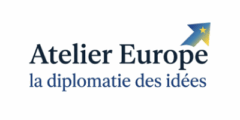by Aymeric Bourdin, Managing Editor EU-Policies.com, Chairman of Atelier Europe
The 2019 European elections are seeing the beginning of a new five-year term in a vastly different context from that of 2014.
On a global scale, the multilateralism that once prevailed has now suffered significant damage. The emergence of a China/United States duopoly is translating into a trade war.
Public opinion has seen growing concern for environmental issues. This has led to a breakthrough in recent European polls, in places like Germany, where green parties came in second place, and France, where they came in third. This movement testifies to citizens’ rapidly growing concern on the topic.
The populist political offer is becoming an increasingly viable option. Targeting the underdogs in the Western democratic globalization, populists are winning votes across the continent, from Germany and Italy, to Austria, Hungary, and Poland.
Brexit plunged Great Britain and continental Europe into the uncertainty of a seemingly endless drama, which is putting the European project to the test.
To deal with these unprecedented issues, a new cast of politicians is replacing the old. While Italian socialist-Democrat David Sassoli has been elected president of the European parliament, other EU “top jobs” have required endless negotiations. A French-German ticket has seen two women elected – Ursula von der Leyen as president-elect of the Commission, and Christine Lagarde as head of the Central Bank. Belgian liberal Charles Michel is president-elect of the Council. And heading up EU diplomacy is Catalan socialist Josep Borrell. The final selection of commissioners to take office in November remains to be seen.
To this end, the new strategic programme negotiated by the member states, the Council and the outgoing Commission, will serve as a basis for the next Commission’s work. This roadmap provides a quinquennial state of affairs and an indication of how leaders perceive the situation. The Robert Schuman Foundation compared the programme adopted on 20 June with its predecessor from June of 2014.They found that the economic and social convergence of member states has been highlighted not as a sustainable solution to the crisis, but as a means of ensuring Europe’s place on the global stage.
The 2019 programme also adds a dimension of sovereignty to the economic dimension of digitization. It underscores the Union’s need to take advantage of the digital revolution “in such a way that it incarnates our social values, promotes inclusion, and remains compatible with our way of life”.
The social dimension, on the other hand, is much less present in 2019 than it was in 2014. No longer a clearly-identified priority, it is now fragmented among other priorities.
Not only have domestic and global issues changed, citizens’ expectations have also evolved. A study carried out by the European Council of Foreign Relations (ECFR) among citizens of fourteen countries showed that the majority of participants hoped that Europe would become “a responsible player in a dangerous world”. The authors of the study found that citizens also hoped that Europe would find its own way in a highly-competitive, multipolar environment.
This would require the EU to shake off its paradox: initially created after the second world war for the purpose of containing national power, Europe must now think and act as a power on a global scale. This is arguably the biggest challenge politicians will face at the head of institutions over the next five years.

